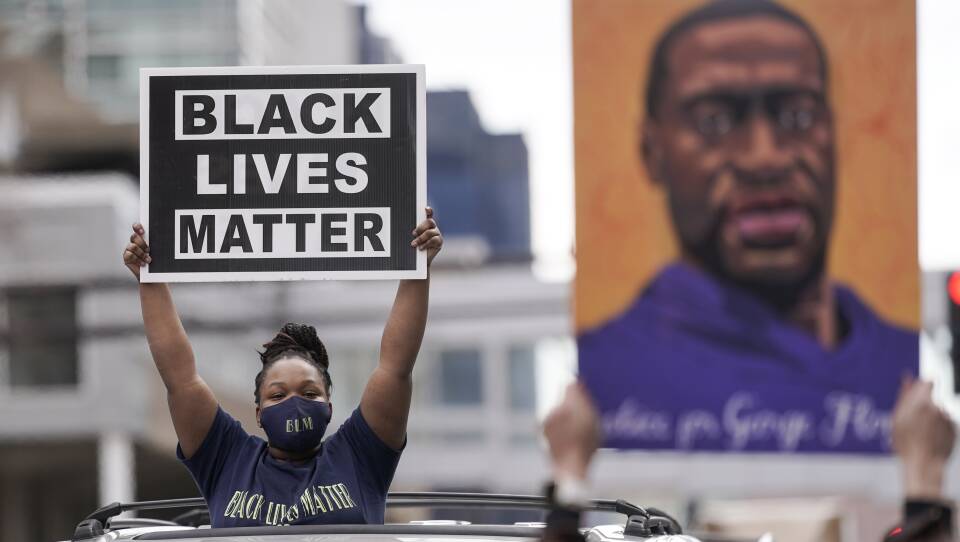Updated at 1:32 p.m.
A Minnesota judge on Friday denied Derek Chauvin's request for a new trial in George Floyd’s death, saying the defense has not shown that the former Minneapolis police officer was deprived of his right to a fair trial.
The ruling from Judge Peter Cahill came hours before Chauvin was scheduled to be sentenced for murder in Floyd's death. Cahill found that defense attorney Eric Nelson did not show that the court abused its discretion or that there was prosecutorial misconduct that would have deprived Floyd of his right.
Cahill also denied Nelson’s request for a hearing into possible juror misconduct.
Chauvin, 45, pinned Floyd to a Minneapolis street for about 9 1/2 minutes on May 25, 2020, ignoring the Black man’s cries of “I can’t breathe” and the shouts of onlookers. Bystander video of Floyd’s death sparked protests in Minneapolis, some violent, and quickly spread around the world.
Nelson had asked for a new trial after Chauvin was convicted in April of second-degree unintentional murder, third-degree murder and manslaughter. These requests are routine, but are rarely granted, and it's expected Nelson will raise the same arguments on appeal.
Nelson argued that intense publicity around Floyd’s death tainted the jury pool and that the trial should have been moved away from Minneapolis. He also offered a range of other arguments, all countered by prosecutors, who said Chauvin was fairly convicted.
Among his arguments was that intense publicity before and during the trial tainted the jury pool and prejudiced the jury against his client.
There were reports in February that Chauvin had been prepared to plead guilty to third-degree murder and an announcement during jury selection that Minneapolis reached a $27 million settlement with Floyd’s family. Also, the fatal shooting of Daunte Wright by a police officer in nearby Brooklyn Center happened during Chauvin’s trial and sparked days of protests.
Cahill also denied Nelson's request for a hearing to “impeach” the verdict, which means to call into question the verdict's integrity or validity. The hearing, known as a Schwartz hearing, is used to examine whether there is juror misconduct.
Nelson accused juror Brandon Mitchell of not being candid during jury selection because he didn’t mention his participation in a march last summer to honor the Rev. Martin Luther King Jr. Prosecutors countered that Mitchell had been open about his views in a jury questionnaire and during the questioning of potential jurors. Nelson also alleged an alternate juror, who did not deliberate, made public comments after the trial indicating she felt pressured to render a guilty verdict.
The judge ruled the defense didn’t establish any evidence of juror misconduct either during trial or during jury selection that warranted an evidentiary hearing.




